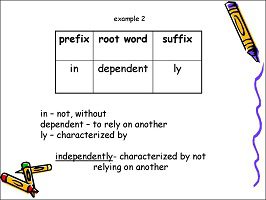Words and word classes
What do we know about Word classes in linguistics? We know that a word is a linguistic unit and that it corresponds, within the linguistic sign, to the lexical level. We know that as a unit it has a certain autonomy, that it is made up of one or more phonemes and that it appears isolated or between spaces in writing.
However, some linguists such as Vendryes and Marinet have come to affirm that there is no universal and valid definition since the concept of “word” depends on its formation in each language. In fact, even in Spanish we have some doubts, because is a word the same as a lexia? Is the word always related to a meaning? And does a lexia always have a meaning?
First of all, we must know what lexias are. The lexia is the minimum lexical unit within a written text that has meaning. It is made up of a lexeme and derivative/inflectional morphemes. So far, both seem the same, but a word may not be made up of lexeme + morphemes. For example, is ” and” a lexicon? What is its lexeme? And the morphemes? What meaning does it have? Well, actually, no. It would be a word, since it responds to a minimum linguistic unit, with a function in syntax, which has a certain autonomy, formed by a phoneme and which appears isolated in the written sentence.
Therefore, a word is not the same as a lexia, since a lexia is always a word, but not all words are lexias. Lexias always have meaning, but words can be functional, too, and have no meaning.
Linguists are almost all convinced of the existence of the category of noun and verb (noun and action). However, there is more discussion when we focus on the rest of the categories that try to encompass words. In fact, over the years, these categories undergo variations that accommodate them in other ways. For example, when I was studying, numerals were adverbs, but later they were determiners. Word classes in linguistics
So,
- a) Noun
- b) Verb
- c) adjective
- d) adverb
- e) Determinant
- f) pronoun
- g) Preposition
- h) Conjunction
are the kinds of words. We’ll briefly explain them here, though each word class deserves its own explanation (see linguistics , morphosyntax , and go to the morphology section ).
a) Noun
Traditionally it is defined as a word that designates people, animals or things in a common or personal way, collective or individual, concrete or abstract, singular or plural, feminine or masculine.
They are formed with a root and some derivative or inflectional endings, and function as a nucleus within a phrase.
b) Verb
The verb is that word that designates an action that can be actively done or can be caused, that is, it can be performed by an entity or entities, or it can have a non-human cause. The verb has experiencers of the action or passive objects of the action.
They are formed with a root and some derivative and inflectional endings, typical and unique to the verbs, which would indicate who or what performs the action and the number of entities or things that perform it (I, you, he, we, you or they ). Word classes in linguistics
c) adjective
They are those words that express the quality of an action, an entity or an object. Some adjectives can intrinsically express more properties or qualities, others only one ( fast facts / scientific data ).
d) adverb
It is known for having a difficult delimitation. For the Greeks they were those words that did not fit into the main classes. What we know is that they generally indicate manner, place or time and that some are adjectives with their own adverbial ending: -mente. ( fast / quickly )
e) Determinant
The determiners accompany the noun and modify it semantically (a man is not the same as a man , since it seems that we do not know the former and the latter yes). They have subcategories that must be studied individually: articles, demonstratives, possessives, indefinites, numerals, interrogatives and exclamatives.
f) pronoun
Pronouns are similar to determiners; however, they accompany the verb and not the noun. We have: personal, demonstrative, possessive, indefinite, numeral, relative, interrogative and exclamatory.
When we say that they accompany the verb, it is because, although they usually refer to the noun, they usually go alone in the sentence and depend on the verb (omitted or not). For example, in a conversation [This (book) is mine (book)] Both “this” and “mine” are pronouns.
g) Preposition
They are words that function as links. Its meaning is usually given within the sentence, since by themselves they do not usually have greater relevance ( It is on the table) . The preposition acts within the phrase.
h) Conjunction
Conjunctions are also words that function as links. They generally differ from prepositions because they unite phrases.
